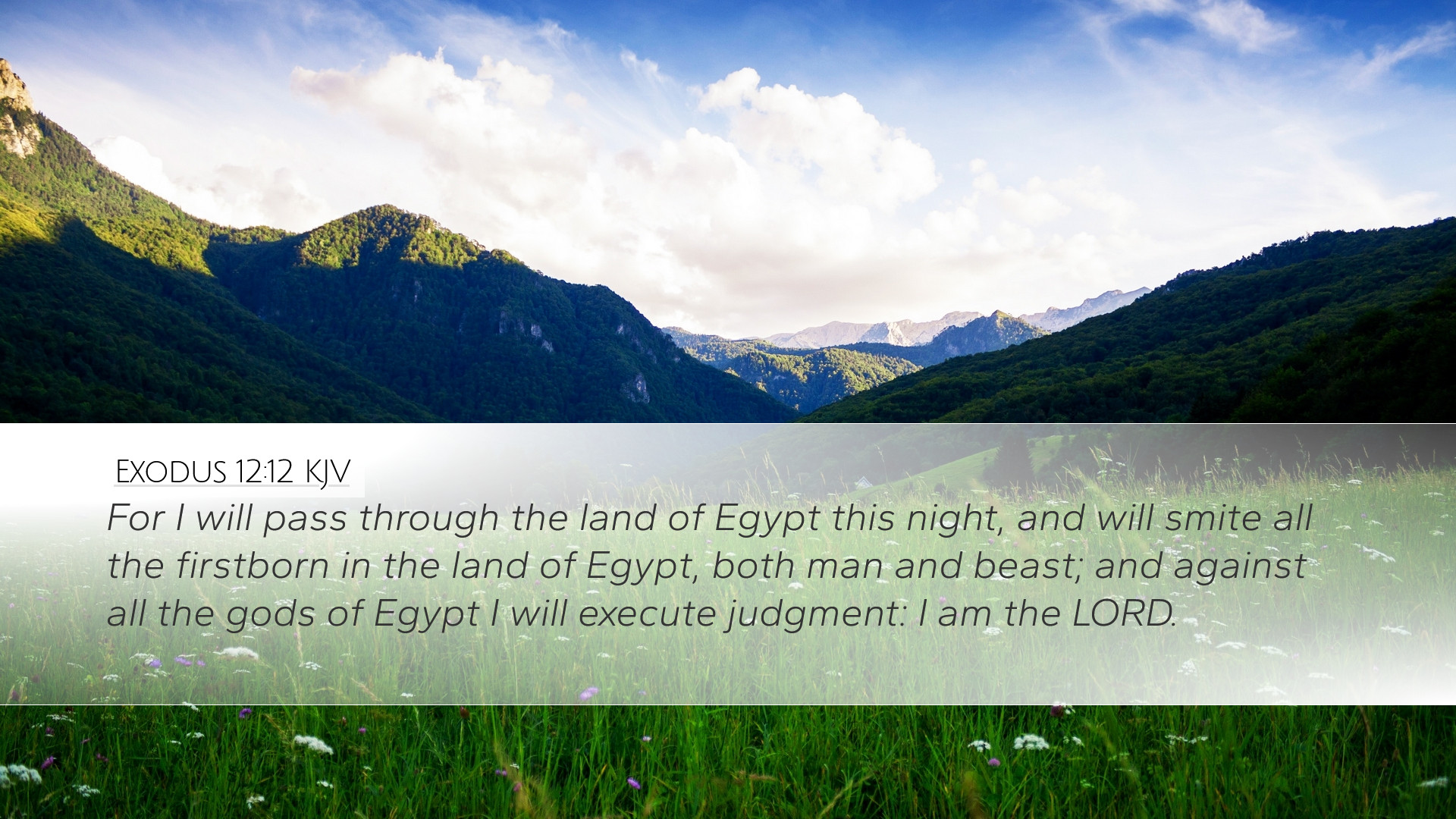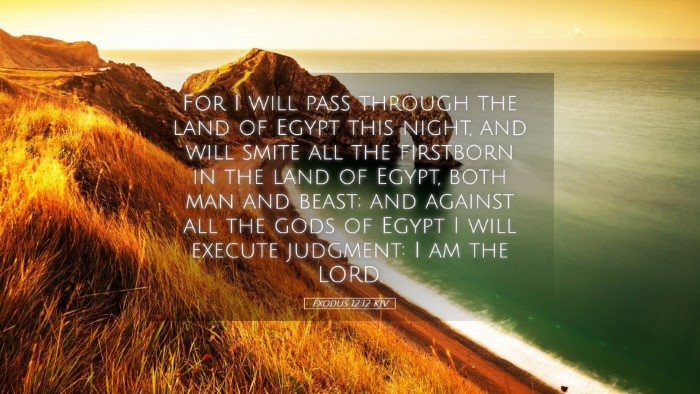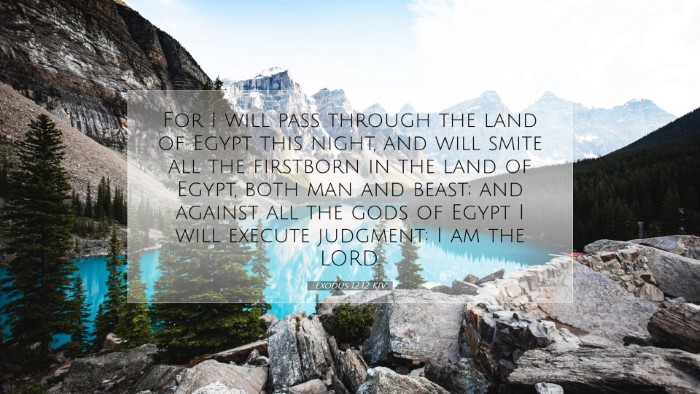Commentary on Exodus 12:12
Verse Reference: Exodus 12:12
Text: "For I will pass through the land of Egypt this night, and will smite all the firstborn in the land of Egypt, both man and beast; and against all the gods of Egypt, I will execute judgment: I am the LORD."
Introduction
Exodus 12:12 serves as a pivotal moment in the narrative of the Israelites' Exodus from Egypt. This verse is part of God's instructions regarding the Passover, a significant event symbolizing deliverance and divine judgment. The insights from public domain commentaries contribute to an enriched understanding of this scripture, emphasizing theological, historical, and practical implications.
Theological Insights
Theologically, this verse underscores God's sovereignty and the seriousness of judgment. As Matthew Henry notes, the Lord's declaration of passing through the land indicates His active role in executing justice and delivering His people. It serves as a reminder of God's holiness, which necessitates judgment upon sin.
Albert Barnes emphasizes that this judgment was not only against Egypt's people but also against their gods. This points to the Lord's supremacy over all false deities, demonstrating that He alone reigns supreme and that idolatry is both futile and offensive to Him.
Historical Context
Historically, Exodus 12:12 is situated in a narrative rich with implications concerning Israelite identity and liberation. God tells Moses of the impending judgment that would lead to the release of the Israelites from enslavement. Adam Clarke provides context here by examining the socio-political environment of Egypt, where the oppression of the Israelites was a direct affront to God's covenant with His people.
The execution of divine judgment was a necessary prelude to Israel’s liberation and emphasizes God’s commitment to His promises.
Divine Judgment and Mercy
This verse starkly contrasts God's judgment with His mercy. As part of His instructions, God provides a means of escape through the Passover lamb, highlighting His desire for redemption rather than destruction. Matthew Henry draws attention to the blood of the lamb as a symbol of atonement, foreshadowing later New Testament revelations of Christ's sacrifice.
Albert Barnes notes that while judgment is severe, the means of salvation provided demonstrates God's character as loving and gracious, asking for the faithful observance of the covenant through the blood of the lamb, which would protect the Israelites from the judgment to come.
Judgment Against Idolatry
When God declares that He will bring judgment against all the gods of Egypt, it serves as a profound commentary on idolatry. Adam Clarke elaborates on the nature of Egyptian deities and how their impotence is contrasted with YHWH’s power. This theme continues throughout scripture as God's authority is repeatedly validated against the backdrop of human-made idols.
This aspect is particularly relevant for modern readers as it challenges contemporary forms of idolatry and calls for a reflection on what we might place before God in our lives.
Applications for Today
The lessons derived from Exodus 12:12 are vast and relevant across generations. For pastors and theologians, this scripture serves as a foundation for preaching about God's judgment and grace. The clear distinction between the consequences of sin and the provision of salvation invites robust discussion on repentance, faith, and reliance on Christ as our ultimate Passover Lamb.
- Understanding Judgment: This passage reminds believers that while God is loving, He is also just. His holiness cannot overlook sin.
- The Call to Faith: Just as the Israelites were called to believe in God's promise and act in faith by marking their doors, believers today are called to trust in Christ for salvation.
- Recognizing Idols: The challenge to identify and eliminate modern-day idols is crucial. What competes with God’s rightful place in our hearts?
Conclusion
Exodus 12:12 encapsulates an essential moment in redemptive history, reflecting God's justice and mercy. As we understand this verse through the insights of Matthew Henry, Albert Barnes, and Adam Clarke, we are reminded of God's sovereignty over nations, His call for repentance, and His provision for salvation through the blood of the Lamb.
It urges contemporary scholars and believers alike to consider the gravity of divine judgment while embracing the hope found in God's grace for those who trust in Him.


